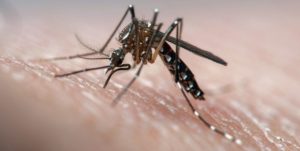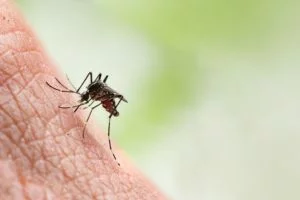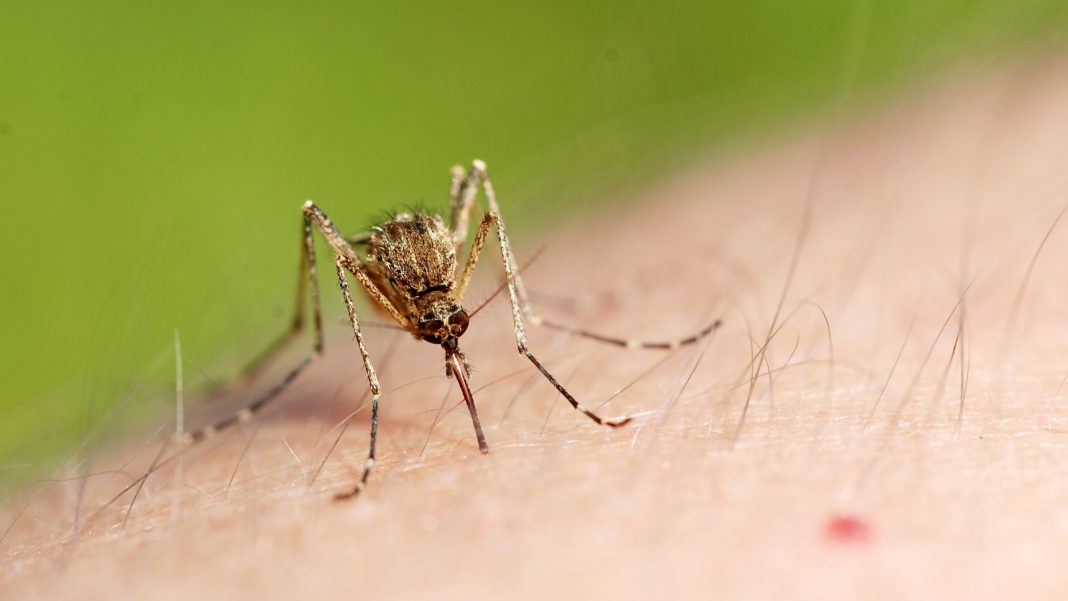Why Do Mosquito Bites Itch More At Night? When a mosquito bites you, it injects its saliva into your skin. This saliva contains proteins that can trigger an immune response in your body. Your immune system is your body’s defense against illness and infection. It is made up of a network of cells, tissues, and organs that work together to protect you from harm.
A Mosquito Bite and Your Immune System
When a mosquito bites you, your immune system kicks into gear to try and defend your body against the foreign proteins in the mosquito’s saliva. It does this by releasing antibodies, which are proteins that recognize and bind to specific foreign substances in your body. These antibodies help to neutralize the foreign proteins and prevent them from causing harm.
In some cases, the immune response to a mosquito bite can cause an allergic reaction. Symptoms of an allergic reaction to a mosquito bite may include redness, swelling, and itching at the bite site. In more severe cases, an allergic reaction to a mosquito bite can lead to anaphylaxis, which is a life-threatening condition that can cause difficulty breathing and a drop in blood pressure.
It is important to keep your immune system healthy to help it protect you from illness and infection. You can do this by eating a balanced diet, getting regular exercise, getting enough sleep, and managing stress. It is also important to practice good hygiene, such as washing your hands frequently and covering your mouth and nose when you cough or sneeze. If you are concerned about your immune system or have a history of allergic reactions to mosquito bites, it is a good idea to speak with a healthcare professional.
Does Scratching Increase the Itchiness?
Scratching an itch can actually make the itch worse, even if it provides temporary relief. When you scratch an itch, you are creating microscopic wounds on your skin. These wounds can become infected, which can lead to more itching and scratching. Additionally, scratching can also cause your skin to become inflamed, which can also increase the itchiness. It is generally best to try to resist the urge to scratch and to find other ways to manage the itch, such as using a moisturizer or taking an antihistamine.

Why the Itching Gets Worse at Night?
There are several reasons why itching may seem to get worse at night. One reason is that when we are lying in bed, we are not as able to distract ourselves from the sensation of itching. During the day, we may be able to focus on other things and not notice the itching as much. At night, when we are in a quiet, dark room, the sensation of itching may become more prominent.
Another reason why itching may seem worse at night is that our body’s natural anti-inflammatory chemicals, such as cortisol, are at their lowest levels at night. This means that at night, our body may not be as able to reduce inflammation and swelling, which can contribute to the sensation of itching.
Finally, certain conditions, such as eczema, may be more severe at night due to fluctuations in body temperature and hormone levels. If you are experiencing severe itching at night, it is a good idea to talk to a healthcare professional for guidance on how to manage your symptoms.
Cortisol Levels
There is some evidence to suggest that cortisol levels may be related to mosquito bites. Some research has found that people who have higher levels of cortisol in their bodies may be more attracted to mosquitoes. It is not clear exactly why this is the case, but it is thought that cortisol may alter the body’s scent in a way that makes it more appealing to mosquitoes.
However, it is important to note that there are many other factors that can affect a person’s attractiveness to mosquitoes, such as the amount of carbon dioxide they exhale, the temperature of their skin, and the chemicals present on their skin. It is not clear how much of an effect cortisol levels alone have on a person’s attractiveness to mosquitoes.
If you are experiencing an unusual number of mosquito bites, it is a good idea to take steps to protect yourself from mosquitoes, such as using insect repellent, wearing long sleeves and pants, and avoiding being outside at dawn and dusk when mosquitoes are most active. If you are concerned about your cortisol levels or are experiencing other symptoms that may be related to cortisol, it is a good idea to talk to a healthcare professional for guidance on how to manage your symptoms.

Increase in Blood Flow
There is a relationship between increased blood flow and mosquito bites. Mosquitoes are attracted to the carbon dioxide and heat that is emitted by the body, as well as certain chemicals that are present on the skin. When blood flow is increased, such as during exercise or due to warm temperatures, the body emits more of these attractants, which can make an individual more attractive to mosquitoes. Additionally, the increased blood flow can make it easier for a mosquito to locate and bite a blood vessel, as the vessels will be more dilated and closer to the surface of the skin.
Changes in Hormones
There is some evidence to suggest that changes in hormones can affect an individual’s mosquito bites itch more at night. Mosquitoes are attracted to chemicals that are present on the skin, and these chemicals can be influenced by hormones. For example, some research has found that pregnant women taking birth control pills may be more attractive to mosquitoes due to certain hormones. Similarly, men who have high levels of testosterone may also be more attractive to mosquitoes. However, it is important to note that there is still much that is not known about the relationship between hormones and mosquito attraction, and more research is needed to understand this relationship fully.
Anxiety or Depression
There is no direct relationship between anxiety and mosquito bites itching more at night. Mosquitoes are attracted to certain chemicals that are present on the skin, as well as heat and carbon dioxide, and they use these cues to locate potential hosts. Anxiety does not affect the presence or absence of these chemicals or the amount of heat and carbon dioxide that is emitted by the body.
However, it is possible that individuals who are anxious may be more aware of mosquito bites and more likely to notice them, which could create the perception that they are being bitten more frequently. It is also possible that anxiety could affect an individual’s behavior in ways that could increase their risk of being bitten by mosquitoes, such as by spending more time outside or in areas where mosquitoes are present.
How to Treat Mosquito Bites?
The best treatment for mosquito bites is to avoid getting bitten in the first place by using insect repellents and wearing protective clothing. If you do get bitten, the most important thing is to resist the urge to scratch the bite. Scratching can break the skin and increase the risk of infection.
To relieve itching and inflammation, you can try the following:
- Apply a cold pack or compress to the bite.
- Use an over-the-counter anti-itch cream or ointment.
- Take an antihistamine, such as diphenhydramine (Benadryl).
- Use calamine lotion.
If you develop a severe allergic reaction to the bite (anaphylaxis) to the mosquito bites itch more at night, seek immediate medical attention. Symptoms of anaphylaxis include difficulty breathing, hives, swelling of the face, tongue, and throat, and rapid pulse.
Closing Thoughts
Mosquito bites itch more at night because our bodies naturally produce more histamine at night, which can intensify the itching sensation. In addition, the lack of distractions and the relaxation of the body during sleep may make us more aware of the itch. It is also possible that the mosquito’s saliva, which is left behind when they bite, may contain substances that can cause our skin to itch. Finally, the body’s immune system may be more active at night, which can also contribute to increased itching.
Also, Read –

